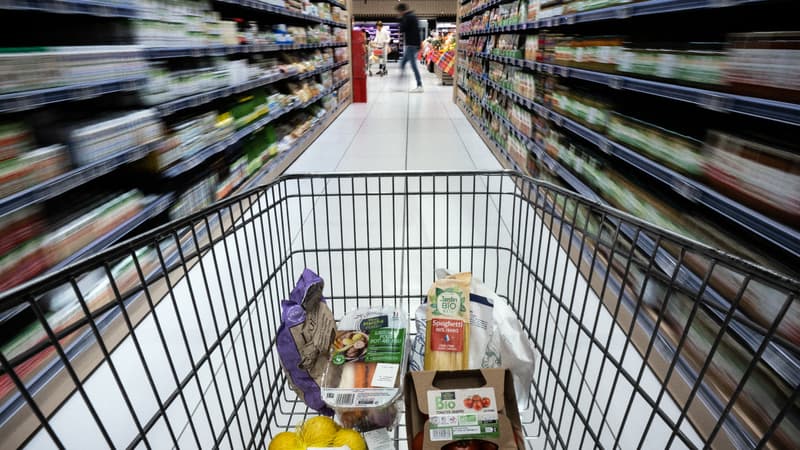If you open a Frenchman’s cupboard or fridge, which brand are you most likely to find? Not Coca Cola (#1 brand in the world), not even Nutella (the brand is not widespread outside of the spread) but… Herta.
According to Kantar, which measures the success of consumer brands in around thirty countries each year*, it is the deli that sells the most products in France under its name. In 2022, 252 million receipts were identified that included at least one Herta product.
Of German origin, Herta was founded by a couple of butchers in 1897 in Herten, in the Ruhr. It was in the early 1950s that the company named Herta in reference to the town of origin as well as the deity of “Mother Earth” in Germanic mythology turned into pre-sliced and packaged industrial delicatessen.
Arriving in France in 1963, Herta has made France its main and almost only market. There it generates more than 70% of its turnover, that is, 750 million euros in 2021, compared to less than 15% in Germany. It is also in France that it has its largest site in Saint-Pol-sur-Ternoise in the Pas-de-Calais, where it has produced hams, bacon bits and above all its famous Knacki sausage since 1973.
Having been in the hands of the Swiss giant Nestlé for 33 years, Herta is now majority owned since 2019 by the Spanish family business Casa Tarradellas based 60km north of Barcelona.
Almost 9 out of 10 homes have Herta products
If Herta continues to be the favorite French food brand, it is because it has continued to diversify and innovate in recent years. From empanadas to appetizer products (mini knackis…) through sausages without pork, ham without nitrites or its vegetable range Le Bon Végétal, Herta has been able to reinvent itself regularly without losing its rather qualitative image among consumers, perhaps thanks to the old advertisements from the 1980s and his famous slogan “a taste for the simple things”.
Result: Herta is present in 86.4% of French homes according to Kantar. Well ahead of its rival Fleury Michon, the second most purchased brand in France with 211 million product sales in 2022 and a penetration rate of 78.7%.
France is thus the only country that has two charcuterie brands among the two most sold in supermarkets. In most countries, it is usually the confectionery brands (Mulino Bianco and Kinder in Italy) or even, more frequently, the drinks that are purchased the most. In the United States, the top five references are all beverage brands (Coca Cola, Gatorade, Mountain Dew, Pepsi and Monster).
In all European countries, it is also Coca Cola that ranks first (1.5 billion purchases in 2022). The American brand is also popular with many of our neighbors (Belgium, Spain, Romania, Hungary, second in Germany).
After charcuterie, it is not surprising to find a cheese and butter brand in third place in France. It is the Lactalis President brand that ranks third with 201 million purchases in 2022 and presence in 85% of homes.
Top 10 most purchased brands in France in 2022
1. Herta – 252 million
2. Fleury Michon – 211 million
3. President – 201 million
4. Coca Cola – 186 million
5. Crystalline – 185 million
6. Panzani – 167 million
7. Harry’s – 156 million
8. Pasquier – 132 million
9. Bonduelle – 124 million
10. The Milkmaid – 119 million
But it was a watermark that achieved the best performance last year. Despite its first price increase in 20 years, Cristaline is the fastest growing Top 50 brand in 2022 with 15% growth in purchase volumes. The water reference is now present in 6 homes out of 10 on average, compared to just over 5 a year earlier. Despite the increase, Cristaline continues to be a very affordable product in times of consumer arbitration with an average price of 1.20 euros for a pack of 6 bottles.
The big losers of the year, on the other hand, are the brands of sweet products. Among the strongest we can mention the Androis brand jam (-18%), the Kinder confectionery (-12%), the Milka chocolates (-8%) or the Bonne Maman jams (-8%) or the spread Nutella (-4%).
When tightening their belts, the French prefer to sacrifice sweet sandwiches instead of charcuterie or cheese.
*Methodology: Kantar’s annual Brand Footprint France study, conducted using the Worldpanel panel of 20,000 ordinary households, tracks almost 2,000 non-private brands in the beverage, food, dairy and pharmaceutical, hygiene, beauty and maintenance sectors for home consumption . .
Data for Austria, Belgium, the Czech Republic, Denmark, Germany, Hungary, Italy, the Netherlands, Poland, Romania, Russia, Slovakia and Sweden have been provided by GfK. Data for Australia and the United States were provided by IRI. Data for Japan were provided by Intage. For China, Kantar is in collaboration with CTR.
Source: BFM TV


